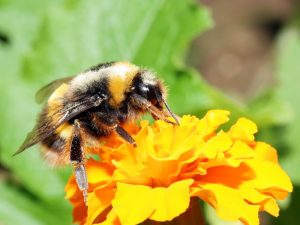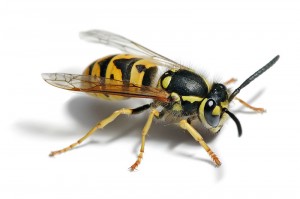Bees & Wasps in Lofts
In Bees and Bee Problems, Pests in April, Pests in August, Pests in July, Pests in June, Pests in May, Pests in September, Pests in Spring, Pests in Summer, Wasps
Bees & Wasps in Lofts:
On Saturday I saw a Queen Bumble Bee flying about at Tilehurst Station. This is very early even for Bumble Bees and not good news for Bumble Bees unless the weather stays mild and the rain stops! The daly emergence from hibernate is often triggered by lid weather. Temperature is not the only factor as daylight length also has a part to play but when insects hibernate in places where there is artificial light (in a building) then temperature might play a more important role. Coming out too early can lead to problems for Queen Wasps and Bumble Bees. With Queen Wasps over 99% of the hibernating population will die before making a successful nest that includes workers and on to rearing next years Queens. most will die. Most will never reach the stage where workers are produced. The reason is that they are trying to feed, build a nest, lay eggs, rear & feed grubs and maintain the nest all in weather that may be cold, windy and wet, in fact typical British Spring weather. I believe the percentage of Queen Bumble Bee Queens mortality is probable a lot less than Queen Wasps. The reasons are that where as up to a 1000 Queen Wasps are produced by a wasp nest, Bumble Bee nests may only produce a dozen or so depending on species. Queen Bumble Bees are also more suited to cold weather. They generally emerge earlier than Queen Wasps and some species even live beyond the Arctic Circle, feeding on the Arctic flowers that thrive during the Summer.

Already at PEST UK we have had calls from people complaining about wasps in the loft and have ‘fogged’ the loft with an insecticide which will not eliminate the wasp problem completely but reduces it dramatically. The problems with treating Queen Wasps in this type of situation is that when cold the metabolism of the insects is slow so they take time to absorb insecticide and of course some Queen Wasps will be hibernating in areas untouched by insecticide such as deep in the soffats, behind roofing felt to under insulation.

